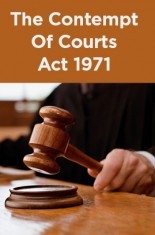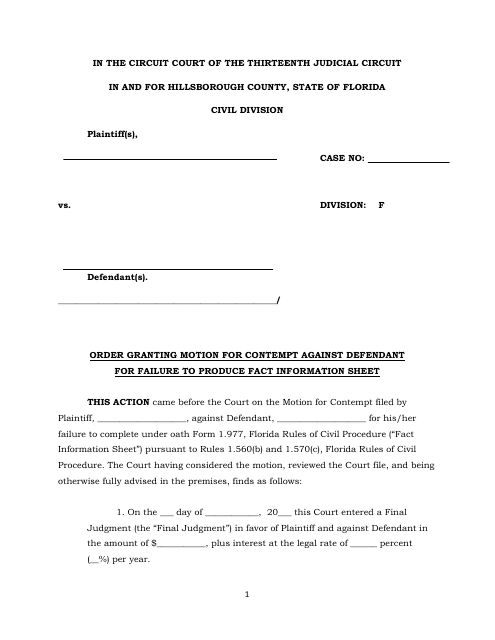

an order to execute a conveyance of property or an order on a person in a fiduciary capacity to pay into court trust moneys as to which he is an accounting party. But for practical purposes most, if not all, contempts fall within the classification which follows: - (a) Disobedience to the judgment or order of a court commanding the doing or abstaining from a particular act, e.g. The ingenuity of the judges and of those who are concerned to defeat or defy justice have rendered contempt almost Protean in its character. The term contempt of court, when used with reference to the courts or persons to whom the exercise of the judicial functions of the crown has been delegated, means insult offered to such court or person by deliberate defiance of its authority, disobedience to its orders, interruption of its proceedings or interference with the due course of justice, or any conduct calculated or tending to bring the authority or administration of the law into disrespect or disregard, or to interfere with or prejudice parties or witnesses during the litigation. Pr., 10th ed., 1896 Anson, Law and Custom of the Constitution, 3rd ed., 1897.) 2. 197) the competence of the legislative assembly of New South Wales to make standing orders punishing contempt was recognized to exist under the colonial constitution, but the particular standing orders under consideration are held not to cover the acts which had been punished. In the case of Nova Scotia the provincial assembly has power to give itself by statute authority to commit for contempt ( Fielding v. This power has in some cases been given directly, in others by authority to make laws and regulations under sanctions like those enforced by the Houses of the imperial parliament. 63) it was held that the power belonged to parliament by ancient usage only and not on the theory above stated, and in each colony it is necessary to inquire how far the colonial legislature has acquired, by order in council or charter or from the imperial legislature, power to punish breach of privilege by imprisonment or committal for contempt. It was at one time considered that the privilege of committing for contempt was inherent in every deliberative body invested with authority by the constitution, and consequently that colonial legislative bodies had by the nature of their functions the power to commit for contempt. Orders for committal by the Commons are effectual only while the House sits orders by the Lords may be for a time specified, in which event prorogation does not operate as a discharge of the offender.

It is now the accepted view that the power of either House to punish contempt is exceptional and derived from ancient usage, and does not flow from their being courts of record. White (1701), as a breach of privilege, to the cases of Burdett v.
Contempt of court pdf trial#
The nature and limits of this authority to punish for contempt have been the subject of not infrequent conflict with the courts of law, from the time when Lord Chief Justice Holt threatened to commit the speaker for attempting to stop the trial of Ashby v. Each of the two houses of Parliament has by the law and custom of parliament power to protect its freedom, dignity and authority against insult, disregard or violence by resort to its own process and not to ordinary courts of law and without having its process interfered with by those courts. CONTEMPT OF COURT, in English law, any disobedience or disrespect to the authority or privileges of a legislative body, or interference with the administration of a court of justice.ġ.


 0 kommentar(er)
0 kommentar(er)
